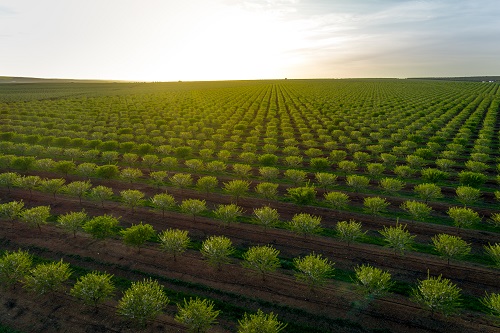Massive Honey Bee Hive Losses Hit Beekeepers and Almond Growers
March 06, 2019
Bee Colony Collapse, Honey Bees
The blooming of California’s almond groves occurs all at once, and with it comes an influx of beekeepers and their honey bee hives to pollinate the countless pale white flowers. For Bret Adee, a veteran beekeeper, he’s already hustling to get his bees ready for almond pollination before moving them to the orchards in California’s Central Valley. He’s been working his 35-man crew day and night to move roughly 100 semi-truckloads of beehives, with Central Valley being their first stop on their annual 6,500-mile tour of the nation. However, with this particular almond pollination season, Adee is scrambling much more than in a typical year.
By his account, Adee lost over half his bee stock this past winter—roughly 50,000 total. The worst part about it is that he is far from the only one to lose so many bees in a few months. "You know, in September, I thought we had the most awesome bees ever," Adee said. "The bees looked incredibly good." Many U.S. beekeepers lost half their bee hives this winter, calling a hive without any live bees at all a "deadout." Some beekeepers lost as much as 80 percent, and the actual surviving hives aren’t exactly thriving in terms of numbers. For many years, Adee said he would get nervous just losing five percent, but eventually 40 percent losses every couple of years became common, and it’s concerning, to say the least.
California’s almond groves have expanded so much in 10 years that blooming season calls for practically all available U.S. commercial hives, from New York to Florida to everywhere in between. Almond season is as crucial for beekeepers, bringing in half their income for the year and giving their bees the chance to grow while healing from winter. This year, however, many beekeepers told their orchardists they wouldn't have enough honey bees this year for their contracts, leaving orchardists desperate for hives.
According to the experts, honey bees have been recently dealing with a variety of stressors—habitat loss, chemicals, malnutrition, viruses, and climate change—but it’s bloodsucking varroa mites that are causing bees the most problems this year. Last year, an Oregon State University bee expert, Ramesh Sagili, predicted huge mite-induced bee losses. "It's a very lethal parasite on honey bees," Sagili said. "It causes significant damage not only to the bee, but to the entire colony. A colony might be decimated in months if this varroa mite isn't taken care of."
Strangely, various almond industry spokespeople are maintaining that everything is fine. "Orchard growers who have longstanding relationships with beekeepers are not experiencing problems," Bob Curtis, who consults for the Almond Board of California, said. "Folks that are having trouble are the ones that don't make the contracts in the fall with beekeepers." Spring surveys should provide a better look at bee losses nationwide, but almond orchardists may be out of time by then in terms of pollination requirements.
Photo By luisviegas


.jpg)



